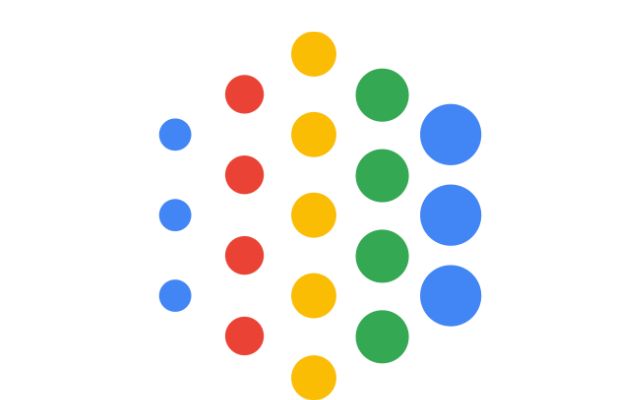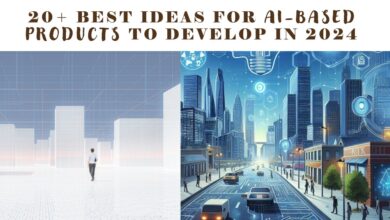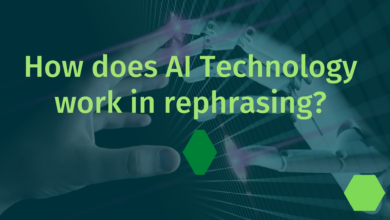Discover Google AI: Amazing Benefits and Drawbacks
Explore the world of Google AI: its definition, applications, advantages, challenges, and future. Discover how it’s shaping our lives.

“What Is Google AI?” is a question that has been on the minds of many in the tech world. Google AI, a branch of the tech giant Google, is at the forefront of artificial intelligence research and development. It’s a field that’s rapidly evolving, with Google AI leading the charge in creating innovative solutions that are transforming the way we live and work.
From voice recognition to predictive analytics, Google AI is harnessing the power of machine learning to create tools that can understand, learn, and think. This article aims to shed light on what Google AI is, its applications, and its impact on our lives. So, let’s dive into the fascinating world of Google AI and explore its potential.
What is AI?
Artificial Intelligence, or AI, is a field of computer science that aims to create machines that mimic human intelligence. This could be anything from recognizing speech, to learning, planning, problem-solving, and even perception. A key part of AI is machine learning, where machines are trained to learn from experience, much like how humans do.
AI has been around since the 1950s, but it’s only in recent years that it has become a part of our everyday lives. This is largely due to advancements in data storage, processing power, and the advent of algorithms that can learn from large amounts of data.
Now, let’s take a closer look at Google’s involvement in AI.
Google’s Involvement in AI
Google has been a key player in the AI field for many years. They’ve made significant strides in AI research and development, with Google AI leading the charge in creating innovative solutions.
One of Google’s most recent AI developments is Gemini, their most capable AI model yet. Gemini is optimized for different sizes: Ultra, Pro, and Nano, and represents one of the biggest science and engineering efforts undertaken by the company.
Another exciting development is the introduction of Bard, an experimental conversational AI service powered by LaMDA. Bard seeks to combine the breadth of the world’s knowledge with the power, intelligence, and creativity of large language models.
Google has also rolled out generative AI to its core search engine, crafting responses to open-ended queries. This move comes after Microsoft incorporated GPT-4 into its Bing search engine.
These advancements show Google’s commitment to harnessing the power of AI to create tools that can understand, learn, and think, transforming the way we live and work.
Deep Dive into Google AI
Google AI is a comprehensive artificial intelligence service developed by Google. It’s designed to bring the benefits of AI to everyone, everywhere in the world. Google AI is not just a single product or service, but a collection of AI technologies and tools that are integrated across Google’s products and services.
One of the most significant developments in Google AI is the introduction of Gemini, Google’s most capable AI model yet. Gemini is optimized for different sizes: Ultra, Pro, and Nano, and represents one of the biggest science and engineering efforts undertaken by the company. This new era of models is a testament to Google’s commitment to advancing the state of AI.
Another exciting development is Bard, an experimental conversational AI service powered by LaMDA. Bard seeks to combine the breadth of the world’s knowledge with the power, intelligence, and creativity of large language models. It draws on information from the web to provide fresh, high-quality responses.
Google has also rolled out generative AI to its core search engine, crafting responses to open-ended queries. This move comes after Microsoft incorporated GPT-4 into its Bing search engine.
These advancements show Google’s commitment to harnessing the power of AI to create tools that can understand, learn, and think, transforming the way we live and work.
Applications of Google AI
Google AI is used in a variety of applications, from search engines to voice recognition and predictive analytics. For instance, Google’s search engine now uses generative AI to craft responses to open-ended queries. This allows the search engine to provide more accurate and relevant results, enhancing the user experience.
Google’s Gemini AI model is another example of how Google AI is being applied. Gemini is Google’s most capable AI model yet, optimized for different sizes: Ultra, Pro, and Nano. It’s used in a variety of applications, from improving search results to powering Google’s experimental conversational AI service, Bard.
Bard, powered by LaMDA, is an experimental conversational AI service that seeks to combine the breadth of the world’s knowledge with the power, intelligence, and creativity of large language models. It can be used to explain complex topics, like new discoveries from NASA’s James Webb Space Telescope, in a simple and understandable way.
However, it’s important to note that Google AI is not without its challenges.
Advantages of Google AI
Google AI has several advantages that make it a game-changer in the tech industry. It can assist, complement, empower, and inspire people in almost every field, from everyday tasks to bold and imaginative endeavors. It can unlock new scientific discoveries and opportunities, and help tackle humanity’s greatest challenges — today and in the future.
Some of Google’s most popular products, like Lens and Translate, were built entirely using artificial intelligence technologies like optical character recognition and machine learning. These AI technologies have made these products far better and more helpful to billions of people.
Google AI also reduces human error and increases accuracy and precision. This is particularly beneficial in fields where precision is crucial, such as healthcare and finance.
Challenges and Criticisms of Google AI
Despite its numerous advantages, Google AI is not without its challenges and criticisms. One of the main concerns is job displacement. As AI automation increases, there may be job losses in certain industries, affecting the job market and workforce.
Ethical concerns, including data privacy and algorithm bias, are also significant issues. There’s a risk that AI technologies could be misused, leading to breaches of privacy or biased decision-making.
Another challenge is the security risks from hacking. As AI systems become more prevalent, they become more attractive targets for hackers.
Lastly, there’s a lack of human-like creativity and empathy in AI systems. While AI can mimic human intelligence to a certain extent, it lacks the ability to truly understand and empathize with human emotions.
The Future of Google AI
The future of Google AI is incredibly promising, with a host of groundbreaking innovations in the pipeline. Google continues to push the envelope when it comes to harnessing data and information. From models that streamline the link between human commands and robot actions, to tools that can transform text prompts into music, Google is working at the cutting edge of deep learning, machine learning, and AI.
One of the most exciting future projects is NotebookLM, described by Google as a “virtual research assistant” that can summarize material, simplify complex ideas, and suggest new connections. Another is the Search Generative Experience, which uses generative AI to supercharge search results with contextual information.
These developments give us an exciting glimpse at what Google has in store for the next 25 years. As we look forward to the future of Google AI, we can expect to see more innovative and transformative applications of this technology.
FAQ
What is Google AI?
Google AI is a branch of the tech giant Google, at the forefront of artificial intelligence research and development. It’s a field that’s rapidly evolving, with Google AI leading the charge in creating innovative solutions that are transforming the way we live and work.
What is AI?
Artificial Intelligence, or AI, is a field of computer science that aims to create machines that mimic human intelligence. This could be anything from recognizing speech, to learning, planning, problem-solving, and even perception.
What are some applications of Google AI?
Google AI is used in a variety of applications, from search engines to voice recognition and predictive analytics. For instance, Google’s search engine now uses generative AI to craft responses to open-ended queries.
What are the advantages of Google AI?
Google AI has several advantages that make it a game-changer in the tech industry. It can assist, complement, empower, and inspire people in almost every field, from everyday tasks to bold and imaginative endeavors.
What are the challenges and criticisms of Google AI?
Despite its numerous advantages, Google AI is not without its challenges and criticisms. One of the main concerns is job displacement. As AI automation increases, there may be job losses in certain industries, affecting the job market and workforce.
What is the future of Google AI?
The future of Google AI is incredibly promising, with a host of groundbreaking innovations in the pipeline. Google continues to push the envelope when it comes to harnessing data and information.
Conclusion
Google AI is a powerful and transformative technology that is shaping our world in countless ways. From its applications in everyday products to its potential to revolutionize industries, Google AI is at the forefront of technological innovation. Despite the challenges and criticisms, the future of Google AI looks promising, with exciting developments on the horizon. As we continue to explore and understand this technology, one thing is clear: Google AI is not just about creating intelligent machines, but about enhancing human life and shaping a better future for all of us.




